


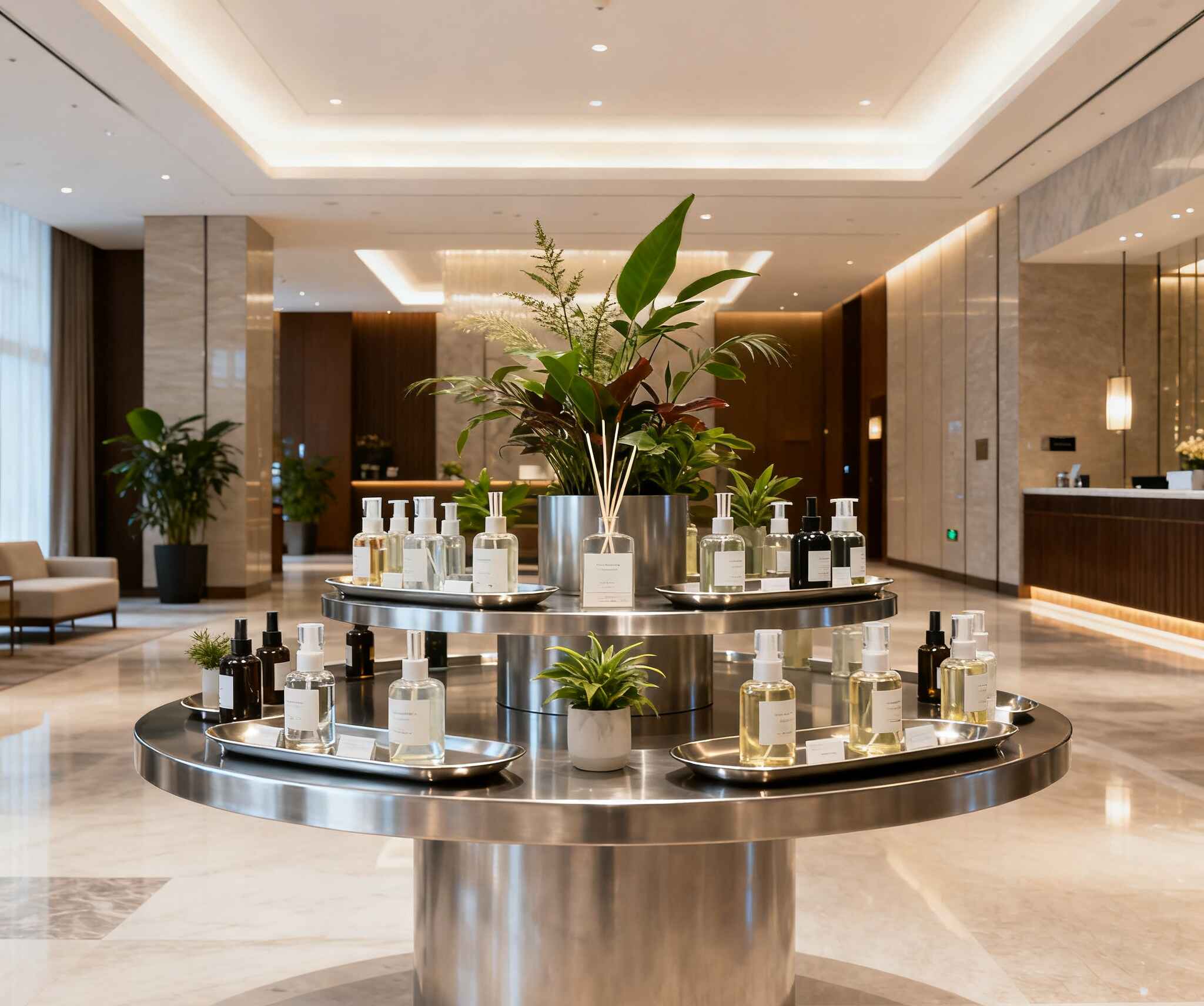
Short version first: guests judge hotels with their noses. Clean, calm, on-brand air lifts reviews, nudges repeat stays, and protects rate. The global air-care category keeps growing, while hotel teams can roll out fast with the right partner. Below, I’ll keep it plain, data-backed, and hands-on. No fluff, no hype.
Air sits in every touchpoint—lobby, corridor, elevator, room, spa, M&E floor. When it’s right, guests relax without thinking. When it’s off, they talk about it… loudly. Research on indoor environmental quality (IEQ) shows that environmental factors explain a meaningful slice of guest ratings across segments. In some studies, IEQ accounts for a large portion of score variance for budget hotels and a significant chunk for luxury properties. Another stream of work shows that continuous IAQ monitoring plus visible disclosure moves sentiment: most guests say air matters; most rate it “good/very good” when a property measures and shares clear metrics like PM2.5, CO₂, and TVOC. That’s the “make the invisible visible” play.
Air care isn’t just odor control. It’s experience design. It’s the first impression at the door and the last memory at checkout. And yep, it impacts ratings you live by.
In public areas, HVAC scent diffusion beats candles and plug-ins for even throw and area coverage. It atomizes oils into micro-fine particles and rides supply air to fill large volumes. You avoid “hot spots” near devices and dead zones at far corners. For corridors and elevators, small standalone diffusers still work, but HVAC lets you centralize schedules and tie cycles to BAS/BMS. That’s operational peace.
For guestrooms, go gentle. Subtle is smart. Rely on humidity control and filtration first, then layer a light, clean accord. Offer opt-in options for scent-sensitive travelers. Don’t hard-scent the whole floor and hope—doesn’t end well.
Explore our hotel-ready oils:
• Air Care Fragrance
• Hotel Fragrance Manufacturer | Premium Scents Customization Service
• ISCENT – Diffuser Fragrance Oil Manufacturer
• Candle Fragrance Manufacturer | OEM
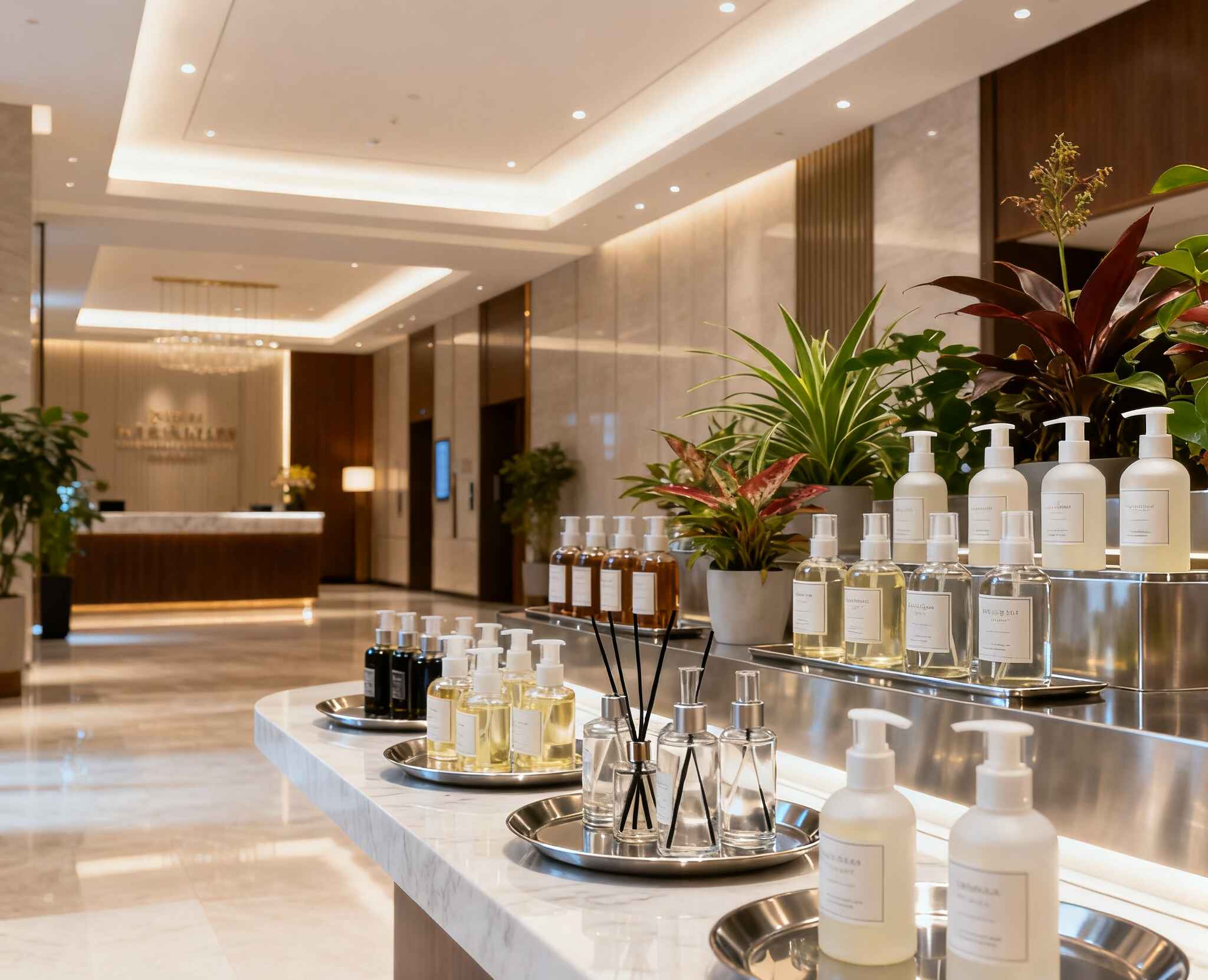
A signature scent turns brand values into a sense memory. Think “quiet luxury,” “fresh city,” or “relaxed nature.” Guests won’t always name the note. They’ll just feel that they belong here. The program lives or dies on fit and dosing:
| Claim | Key figure | Why it matters for hotels | Source |
|---|---|---|---|
| Global air-care keeps expanding | Multi-year growth trajectory; steady CAGR across forecasts | Rising guest expectations + more SKUs for tailored programs | Market research syntheses |
| IEQ influences guest ratings | IEQ explains a sizable share of review score variance | Air isn’t a “nice extra”; it’s a ratings lever | Building-environment literature |
| IAQ monitoring boosts sentiment | Majority say IAQ matters; strong “good/very good” ratings when measured and shared | Showcase IAQ like you showcase cleanliness | Certification case studies |
| Scent affects behavior and recall | Controlled ambient scent links to higher satisfaction and dwell | Use scent to prime mood in lobbies, M&E zones; test locally | Cross-industry scent research |
| HVAC diffusion adoption grows | Hotels shift from candles/plug-ins to HVAC atomization | Even throw, schedule control, integration with BAS/BMS | Industry and equipment reports |
| IEQ complaints cluster | AC, noise, humidity dominate negative mentions | Fix humidity and filtration first, scent second | Review analytics research |
(We’re avoiding links to other sites per your rule. Names are included for credibility.)
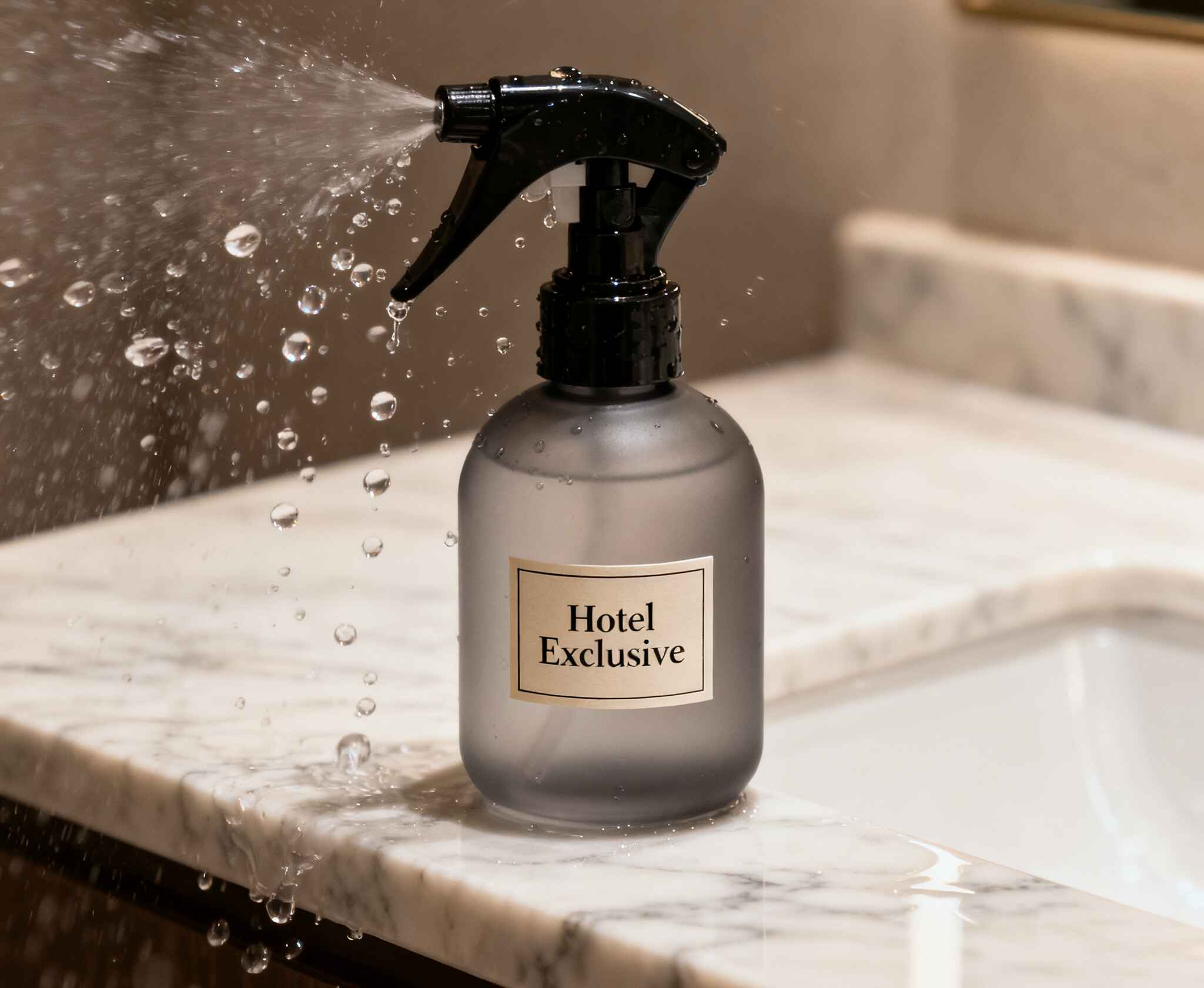
First 10 seconds set the tone. A soft, brand-true accord tells a story without words. A clean citrus-herbal top with a calm woody-musky base is a safe opener for many business hotels. For resorts, add a breezy, mineral lift. Keep intensity low and even across doors, desk, and seating. HVAC diffusion delivers consistent throw and removes device clutter.
Corridors amplify smells. So be gentle. Place micro-nebulizers at far ends to even out airflow weirdness. Elevators need very low settings and short cycles; otherwise guests feel trapped in a cloud. Not cool.
Rooms are personal space. Focus on humidity balance and filtration first. Then, if you add scent, give opt-in control: a tiny reed, a short program on a timer, or nothing unless requested. Design a de-scent protocol for sensitive guests: device off, quick air change, offer a scent-free kit. Front desk should know the play by heart.
Daytime sessions want crispness that doesn’t shout. Evening banquets can shift warmer, but never heavy. Always coordinate with BEOs, room turn timelines, and HVAC setbacks. Log the cycles on the BAS so engineering can spot anomalies.
Spa corridors tolerate richer accords; locker rooms need clean tops. Fitness areas demand odor neutralization first, then a fresh finish. BOH spaces benefit from quiet deodorizing bases in linen rooms and waste holds to stop odor creep into guest areas.
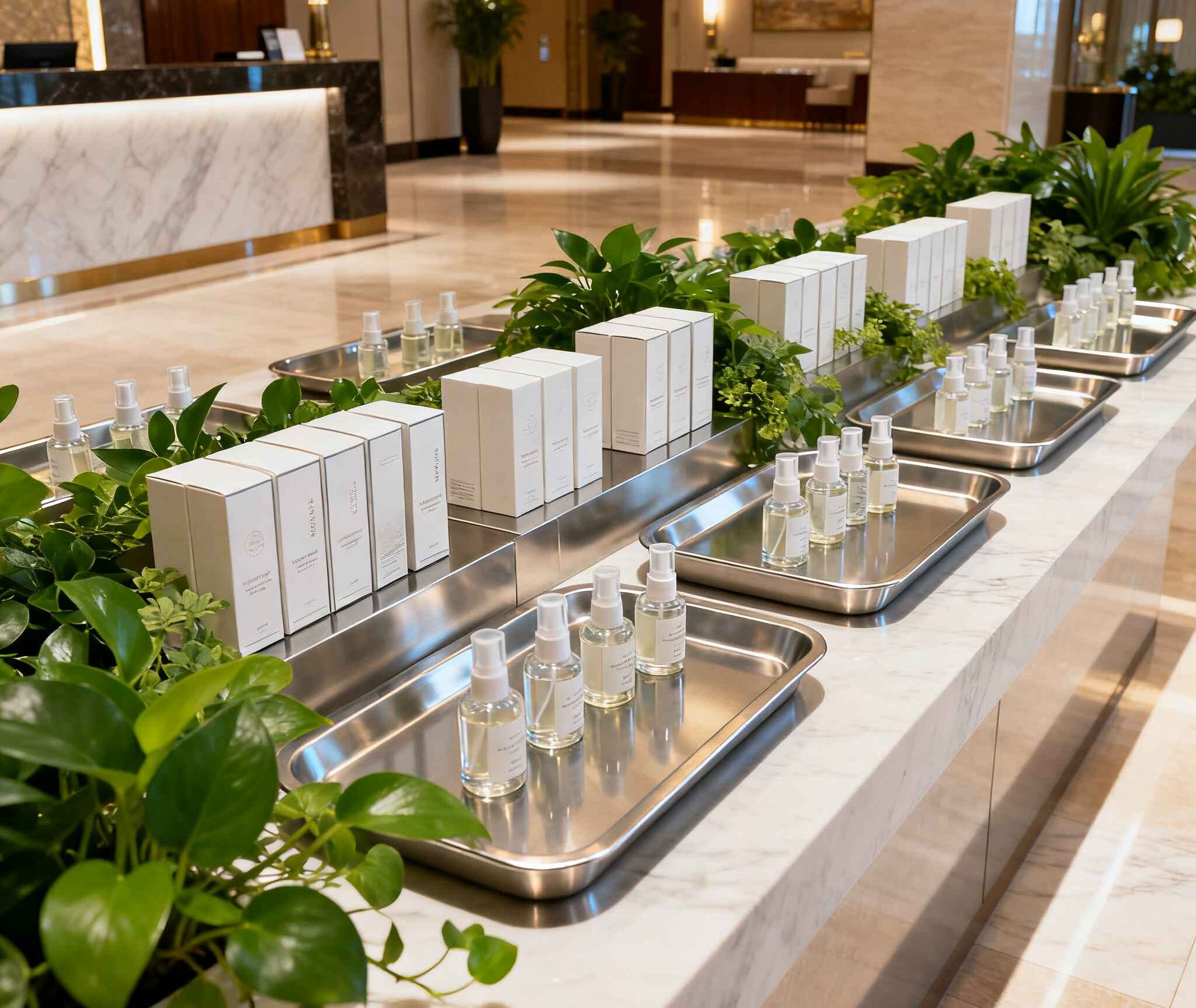
You want speed without drama. You also want consistent results when you reorder months later. That’s the job.
We cut lead times, hold quality, and keep the audit trail clean. You get a partner who understands brand standards, multi-property rollouts, and BAS conversations with engineering—because we do them daily. A little grammar quirk here and there, but our ops are tight.
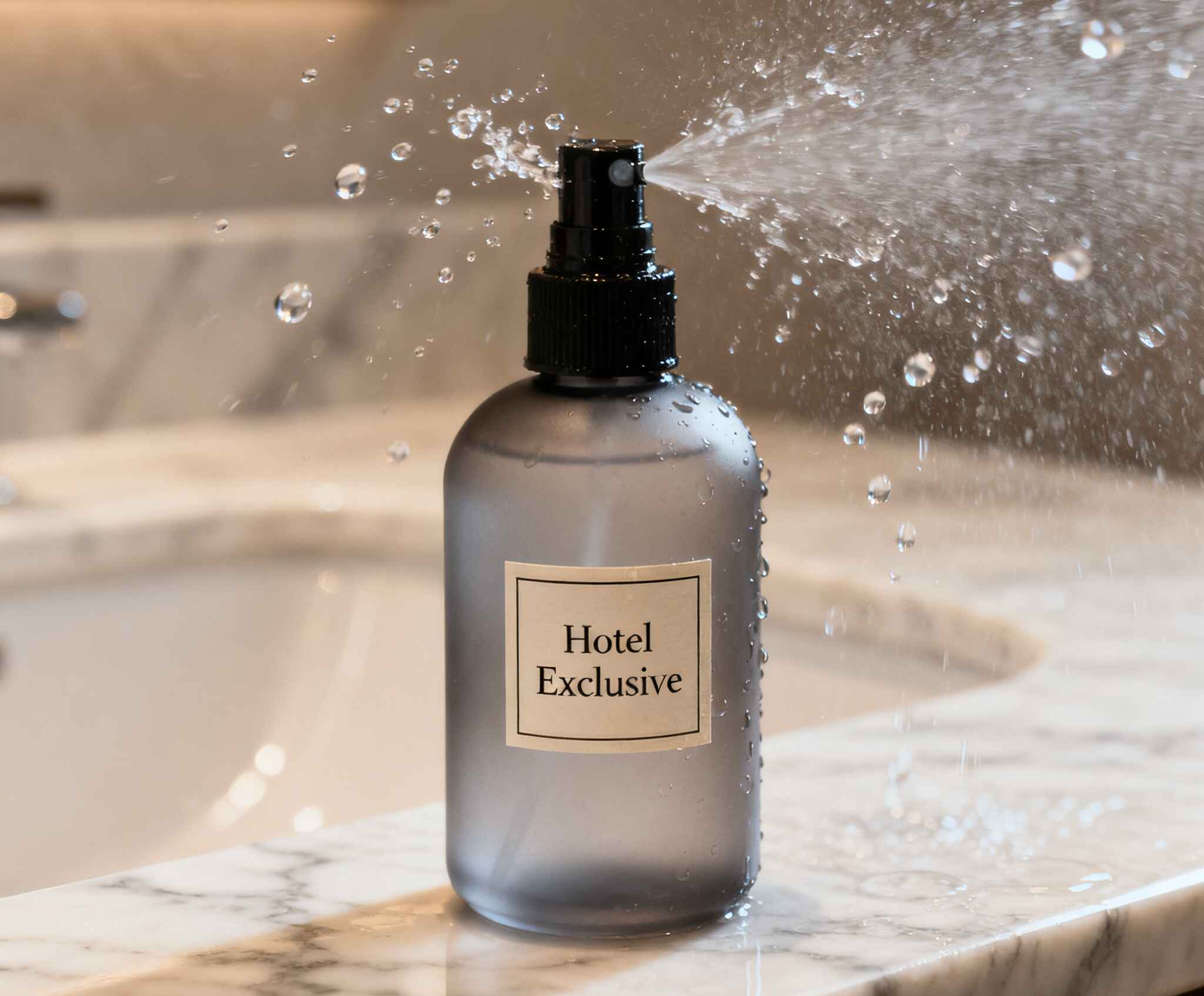
hotel scenting system, HVAC scent diffuser for hotels, IFRA compliant fragrance oils, indoor air quality monitoring in hotels, signature scent program, low-VOC hotel fragrance, aroma diffuser oils wholesale, hotel corridor odor control, spa fragrance oils OEM, hotel lobby scent customization.
When you publish content or RFQs, deep-link to your relevant pages so buyers land on the right solutions:
Treat air care like branding plus engineering. Keep scents subtle, keep IAQ honest, and keep your SOPs boring—in the best way. Do that, and your air becomes the proof of care guests can actually feel.
If you need help, I’Scent can co-design your signature accord, deliver samples quick, and keep standards tight across properties:
We’ll help your property smell like your brand—clean, calm, and kinda unforgettable.